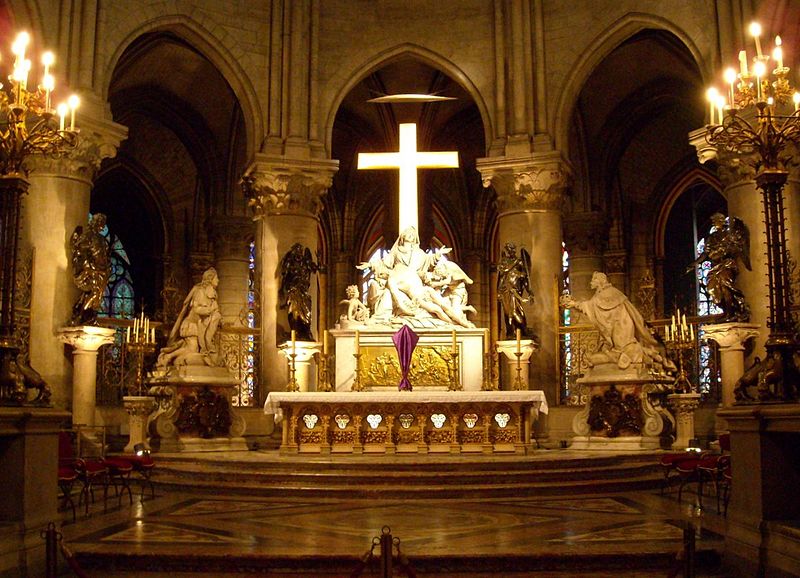Speaking of consequentialism, exposing me to this article arguing that Reformed Christianity provides the “best basis” for Christianity at our putatively-coming time of exile from polite society in the post-Modern world is like letting a cat loose among a bunch of mice. Because, come on.
I will restrain myself to making one very narrow point regarding liturgy, because the following passage is emblematic of the thinking on liturgy from many Reformed/Evangelical sources that I have seen over and over again:
What, one may ask, about liturgy? Is the naked Word preached by itself, without the force of an institution to support it, sufficient for nourishing a vibrant Christian faith, particularly in times of difficulty? Is there not an element of corporate performance beyond simply listening to the Word that is vital in shaping our understanding of who we are and of the world in which we live? Every time we switch on the television or go on the Internet, we are bombarded with a myriad of liturgies that exert an arcane power to shape our identities in ways of which we are often unaware. Can a thirty-minute sermon once or twice a week possibly counteract such insidious subversion? Don’t we need ballast to prevent us from being pushed this way and that by every wind of secular doctrine?
Reformed theologians understand this point. James K. A. Smith highlights the liturgical nature of all of life and the need for the Reformed Church to be self-conscious in its own liturgical performance. David F. Wells underscores the need for an intelligent and well-constructed liturgy that reflects our theological convictions.
“Corporate performance” may or may not be “vital in shaping our understanding of who we are and of the world in which we live” but it must be noted that in the self-understanding of the first fifteen centuries of Christianity and of those churches that retain this understanding, this function of the liturgy is quite beside the point.
In the traditional and biblical understanding of apostolic Christianity, liturgy is “vital” (in every sense of the term!) because it is a concrete encounter with the living God, and that is its only self-justification. Liturgy is the encounter with the Word who is always the Word made flesh, the Lamb sacrificed from the beginning of the world. It is corporate worship (and if those terms are properly understood, worship is the antithesis of “performance”) of and communion with the God who is Emmanuel, who is the hunter, who stops at nothing in his pursuit of dwelling with his beloved disciples (and indeed, his beloved Bride, which is the Church) for the sake of the simple yet transcendant joy of union between God and his good creation.
All these instrumental, consequential benefits may or may not obtain as a consequence of a robust culture of liturgical worship (and I certainly frequently urge my fellow Catholics to up their game in this regard), but those Christians with less-liturgical cultures who look at liturgical churches and imagine that they can be the reason or justification thereof, or that these are the reasons why some Christians stubbornly insist on the importance of liturgy, are really speaking of something completely different.













